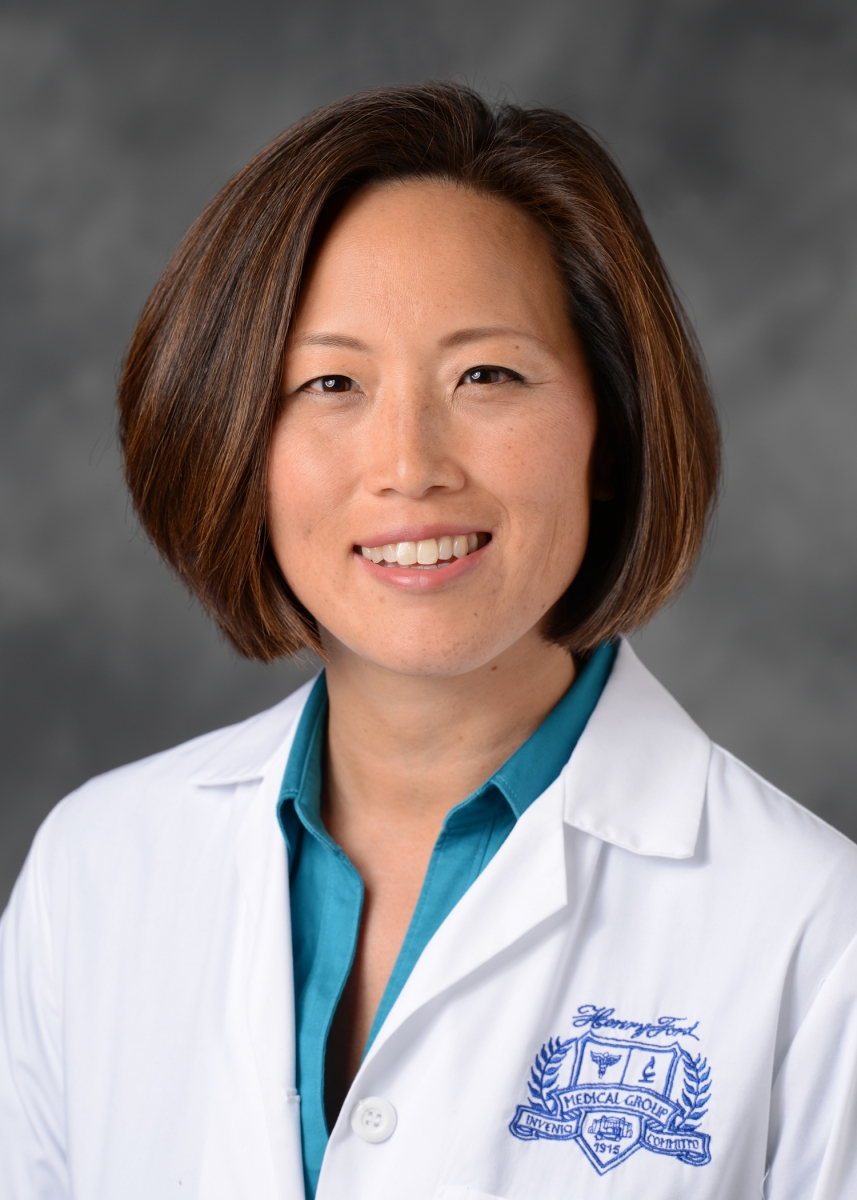How a Michigan Ross Alum is Leading Henry Ford Health System’s Response to the COVID-19 Pandemic

With cases of the COVID-19 virus quickly escalating across Metro Detroit, the U.S., and around the globe, Betty Chu, MBA `13/MD `95, is directing the actions Henry Ford Health System is taking to manage the crisis.
As the incident commander for the HFHS team, Chu wakes up at 5 a.m. and thinks about COVID-19 all day. It’s a role far different from her normal “day job” — the senior vice president, associate chief clinical officer, and chief quality officer at HFHS — and it requires a different way of leading her team.
“In crisis management, you’re focused on the objectives that need to be completed in a 24-hour period of time to keep people safe and not as much on the longer-term projects you would usually be thinking about,” Chu said. “Your speed to action and your directive to action are different in a crisis, meaning stakeholder input is accelerated and there isn’t time for so many revisions.”
It also means approaching objectives differently. “You’re working toward good, not perfect, and that mindset change can be uncomfortable for a lot of people,” she said.
The “new normal” begins
Chu’s day-to-day life began to change when the first cases of COVID-19 appeared far away in China. She and her team started a planning process and daily huddles with specialists to discuss how HFHS would handle the virus if it came to the U.S.
 When the virus did arrive in the U.S., Chu was placed at the center of the incident command structure that was developed for the health system, and she led her team in creating the emergency response plan.
When the virus did arrive in the U.S., Chu was placed at the center of the incident command structure that was developed for the health system, and she led her team in creating the emergency response plan.
“This coronavirus pandemic is completely unique compared to any crisis we have faced before,” she said. “Usually crises, such as a water main break, affect one campus, but this virus is impacting every single part of our operations, and now all our normal operations have changed.”
Chu said she has been most proud of how HFHS has been viewed as a community partner, as well as how the community has supported the system’s workers on the frontline through donations of masks, food, and monetary gifts.
“I came to Henry Ford six years ago because it’s a very people-centric organization that cares about the community,” she explained. “So I’m most proud of how our 105-year-old organization has become a fundamental piece of the community - how we are providing the expertise that they need at this very challenging time.”
For her work and expertise leading HFHS’s response to the COVID-19 crisis, Chu has emerged as a trusted source for information on the coronavirus and its spread locally in the media. Her insightful commentary has been featured in a variety of news organizations, including a recent appearance on WDIV’s “Flashpoint” show.
Leveraging positive leadership practices
Chu continues to maintain a positive attitude despite the chaos of the crisis. She credits a naturally optimistic personality and her husband and two children for providing a strong support system, but also said she has been able to leverage leadership strategies and tactics she learned at Michigan Ross.
“The Executive MBA Program has contributed so much to my career, especially the professional development aspects of the program,” Chu explained. “I often reflect on the leadership examples that were discussed in Bob Quinn’s course when I consider how I should attack this crisis and how to handle difficult issues like employee anxiety.”
In addition, she said that the skills taught in Izak Duenyas’ supply chain management course have been very helpful in understanding inventory needs for the health system, such as for crucial personal protective equipment like masks.
Listen to the experts
Asked what advice she would give to future business leaders at Ross on how to lead through a crisis, Chu said students should focus on listening, especially to the experts. “Listening has been really important in this crisis, but you can’t just listen, you need to defer to others’ areas of expertise, whether that be one of our employees or a patient who feels that something is not quite right,” she said.
“As someone who has received all my degrees from the University of Michigan, I’m very grateful for the organization and the skills and tools I’ve learned from its experts. The education has helped me be successful and I think we are fortunate as a community to have U-M here,” said Chu.







